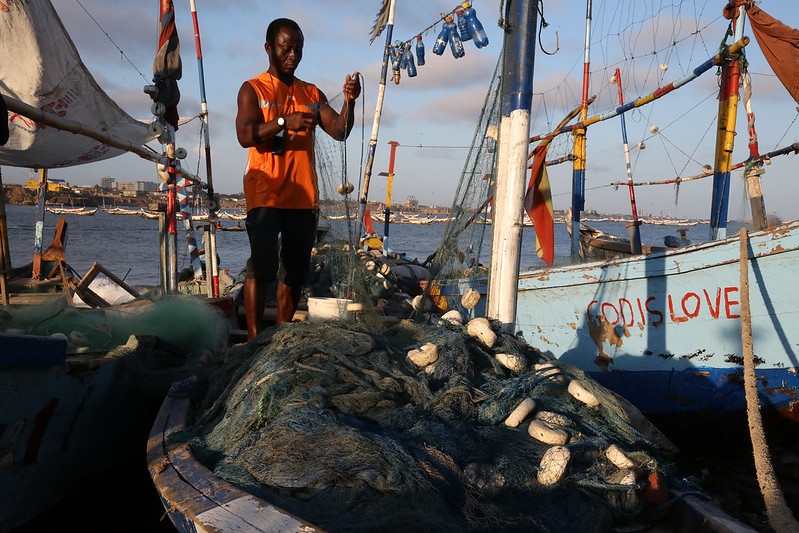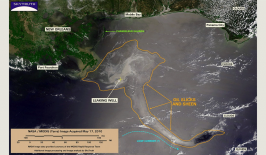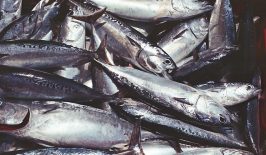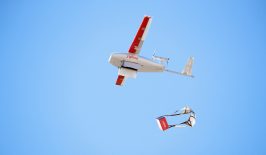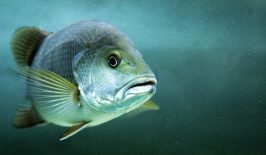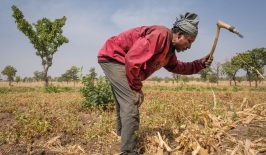For years, Ghana’s lively fishing culture has been floundering. Nearly 10% of the country depends on the fishing industry, but illegal activity along the coast is ravaging wild fish populations. Now, a new app called DASE is tilting power back in favour of small-scale fishers and their communities by allowing them to easily report infractions at sea.
Over 500 kilometres of coastal belt runs along the south of Ghana, a country where the sea gives sustenance. Fish – often smoked, fried or stewed with tomatoes – is a staple of traditional Ghanaian cuisine, and makes up the bulk of many people’s animal protein. Communities dotted all along the coast are served by artisanal fishers, who depend on the bounty of the ocean to make a living.
But for decades now, illegal fishing has threatened the industry. Huge industrial trawlers are wading into Ghanaian waters, breaching exclusion zones and pillaging fish stocks.
“[Fish] populations are really at their lowest recorded levels now,” Victoria Mundy of the Environmental Justice Foundation (EJF) tells me. “They’re on the verge of collapse.”
The knock-on effects of this overfishing for Ghanaians can’t be understated. Around 200 communities rely almost exclusively on the coastal fisheries, with few options to diversify their sources of income. “Fishermen are increasingly reporting returning to shore with zero catch,” says Mundy. “They’ll take out loans to be able to finance their fishing expedition, but then they’re not making the catches to enable them to pay back those loans.”
It’s a vicious cycle: greater scarcity further drives illegal fishing, with small-scale fishers resorting to desperate measures to catch fish, including dynamite and poison. And, as Executive Member of the Ghana National Canoe Fishermen Council (GNCFC), Nana Jojo Solomon, explains to me, these smaller boats are already at a big disadvantage.
“It’s survival of the fittest,” says Solomon. “In the first place, artisanal fishers cannot compete with the highly sophisticated industrial vessels, where you have all these computerised gadgets.”
With fish numbers plummeting and communities struggling to make ends meet, tackling illegal fishing has become a priority. That’s why the DASE app, which was launched by EJF and their partner Hen Mpoano in November 2020, was developed.
An app for more accountability
Using the app on their smartphone, people can easily snap a photo or video of illegal activities sighted in Ghanaian seas. The app then uploads the photo to a central database, where the evidence can be used by law enforcement authorities to catch and prosecute the perpetrators.
The app is built for purpose: it’s small, simple to use, and should work on even low-grade smartphones. It takes a photo with a date and timestamp, and geo-locates where the potential infringement is taking place. The app is proving so successful that it’s already been adapted for use in Sierra Leone and Liberia.
Of course, what DASE does is just the first step in a long road to accountability. But Mundy, who is leading the project at EJF, explains that a key function of the app is also to empower communities.
“The fishers were complaining repeatedly about industrial trawlers fishing in the inshore-exclusion zone reserved for small-scale fishers, but they had no way of documenting or reporting these sightings,” Mundy tells me. Many fishers don’t read or write, so were not able to take the names or numbers of sighted vessels.
“It was really intended to bring them into monitoring and enforcement activities and give them a role in this,” she says. “The idea is that they would then feel a sense of ownership over their resources and, over time, this would also influence a decline in their own illegal fishing activities.”
DASE (which means “evidence” in the Fante dialect of Ghana) makes it a lot easier for people to gather concrete evidence. But, as Solomon points out, enforcement is another issue – and a crucial one. “You send it to the authorities, like the regulators or the commission,” he says, “…and then it ends there. You don’t see prosecution. You don’t hear anything about it. And that is beyond us.”
That’s why he’s urging the international community to be aware of what’s happening, and to act.
“If all these things collapse, then it means national security will also be an issue. It’s an industry that is too big to ignore,” says Solomon. “Gradually, Ghanaian fishers are losing their livelihoods. And we can’t allow it. We need intervention.”
